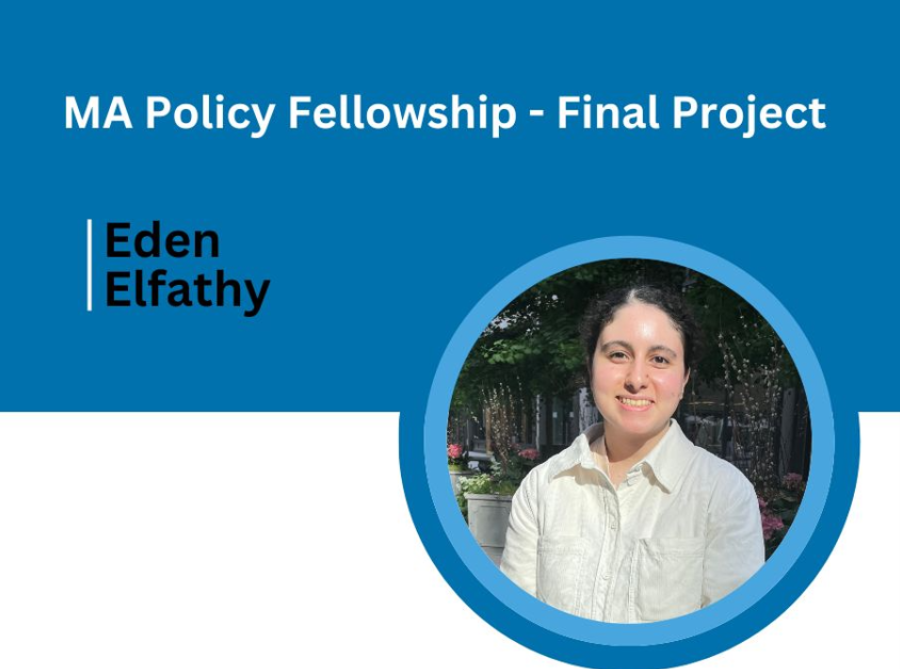News and Updates About Federal Financial Aid & the FAFSA: Students | Practitioners
Policy
Simplification for a Better Education
December 16, 2024
By Eden Elfathy
.png)
Massachusetts is committed to its students and their education, as shown by its public higher education institutions. Yet it’s ranked the fifth highest state for students carrying the most debt in the nation, pointing to a problem in our public higher education that has been put on the back burner for a while: simplification and the lack of a comprehensive financial aid structure.
As a first-generation student entering the college process for the 23-24 school year, I found reading and determining my financial aid packages confusing. From potential fees not being added to the letter of financial assistance to understanding my total cost to be given various income levels that I would need to be under or over to receive different types of financial aid, it was unwarranted and could have been avoided with a more streamlined system in place.
Massachusetts, in the past decade, has created more than 40 different grants, scholarships, and tuition waivers, with each of these consisting of programs that come with varying procedures of applicant, eligibility criteria, and timelines. Not only does this prove to be a barrier for students looking to receive aid to fund their education, but it also increases discretion for programs to make it an exclusive and challenging way to get an education. This adds an extra layer of secrecy in the financial aid process, making it a surprise when students receive their bills and have financially committed to a school.
This secrecy and lack of cohesive financial aid structure have led to severe implications, a growing unmet need, and a growing student debt burden.
Growing unmet needs in Massachusetts have instigated a growing need to take out loans, leading to the ever-increasing burden of student debt. Over the years, the percentage of students taking out loans to attend a four-year public institution has increased by 105%. Many students go to Massachusetts state schools not for their education but for the supposed financial burden that it is supposed to lift us off compared to private schools. This increase not only shows a need for a more progressive approach on the part of Massachusetts for its students to graduate debt-free. But it also shows programs that are supposed to help empower low-income students financially through programs such as MassEducate.
Supporting An Act Improving Access to Affordable Higher Education will allow the Department of Higher Education to recommend a comprehensive redesign and reform of the Massachusetts financial aid system. This will enable the Department to consolidate similar financial aid programs to reduce the burden of the application process and improve transparency within the application process. This step is tremendous in guaranteeing a smoother process for students to apply for aid and increasing transparency, especially in a hectic college process requiring a financial commitment. It will also enable students to gain the power to achieve their education.
As a first-generation student entering the college process for the 23-24 school year, I found reading and determining my financial aid packages confusing. From potential fees not being added to the letter of financial assistance to understanding my total cost to be given various income levels that I would need to be under or over to receive different types of financial aid, it was unwarranted and could have been avoided with a more streamlined system in place.
Massachusetts, in the past decade, has created more than 40 different grants, scholarships, and tuition waivers, with each of these consisting of programs that come with varying procedures of applicant, eligibility criteria, and timelines. Not only does this prove to be a barrier for students looking to receive aid to fund their education, but it also increases discretion for programs to make it an exclusive and challenging way to get an education. This adds an extra layer of secrecy in the financial aid process, making it a surprise when students receive their bills and have financially committed to a school.
This secrecy and lack of cohesive financial aid structure have led to severe implications, a growing unmet need, and a growing student debt burden.
Growing unmet needs in Massachusetts have instigated a growing need to take out loans, leading to the ever-increasing burden of student debt. Over the years, the percentage of students taking out loans to attend a four-year public institution has increased by 105%. Many students go to Massachusetts state schools not for their education but for the supposed financial burden that it is supposed to lift us off compared to private schools. This increase not only shows a need for a more progressive approach on the part of Massachusetts for its students to graduate debt-free. But it also shows programs that are supposed to help empower low-income students financially through programs such as MassEducate.
Supporting An Act Improving Access to Affordable Higher Education will allow the Department of Higher Education to recommend a comprehensive redesign and reform of the Massachusetts financial aid system. This will enable the Department to consolidate similar financial aid programs to reduce the burden of the application process and improve transparency within the application process. This step is tremendous in guaranteeing a smoother process for students to apply for aid and increasing transparency, especially in a hectic college process requiring a financial commitment. It will also enable students to gain the power to achieve their education.